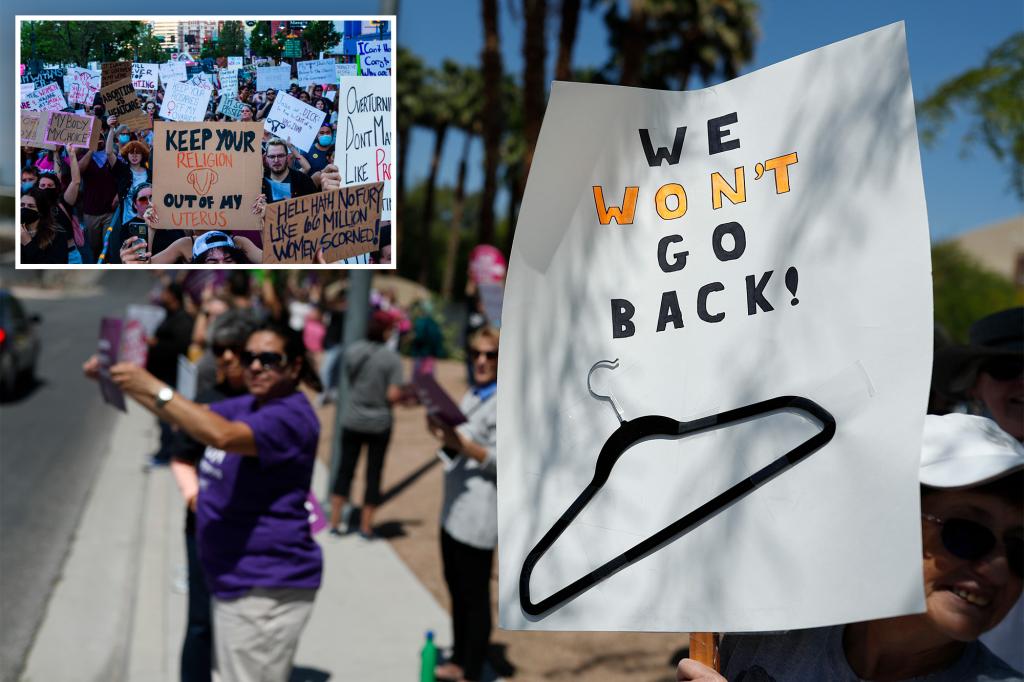Breaking News
Nevada to allow pregnant women to use taxpayer money to fund abortions

Nevada is poised to join the ranks as the 18th state permitting low-income pregnant women to utilize Medicaid funds for abortion services.
The state government has chosen not to challenge a judge’s ruling earlier this year that determined the denial of abortion coverage violated Nevada’s equal rights protections established by voters in 2022.
While there is no specific timeline for when the coverage will commence, the presiding judge has indicated it should be implemented no later than early November.
“Nevadans who rely on Medicaid for their healthcare will no longer have to worry about being compelled to continue a pregnancy against their wishes,” stated Rebecca Chan, an attorney with the ACLU Reproductive Freedom Project, which was involved in the lawsuit.
Since the landmark decision in 2022 by the US Supreme Court to overturn Roe v. Wade, a law that had guaranteed abortion access for women for 50 years, the issue of abortion has become a focal point for voters nationwide.
Many states controlled by the GOP have implemented bans or restrictions on abortion, with 14 states prohibiting abortion at all stages of pregnancy, with some exceptions, and four states generally prohibiting it after the first six weeks of pregnancy.
In contrast, most Democratic-controlled blue states have taken steps to safeguard and expand abortion access. Nevada, where Democrats control the legislature, is among the states that have taken measures to protect this access.
Recently, a judge struck down North Dakota’s abortion ban, and Arizona repealed a longstanding 1864 law criminalizing all abortions except in cases where a woman’s life was at risk.
Voters in The Silver State will have the opportunity to vote on enshrining the right to abortion in the state constitution in November. If the referendum passes, there will be a subsequent vote in 2026.
Despite the availability of abortion services in many states, a significant issue is whether Medicaid covers the procedure for patients enrolled in the joint state-federal program for low-income individuals.
Under a 1977 law, federal funds are prohibited from being used for abortion, except in cases of rape, incest, and when the procedure is necessary to save the pregnant individual’s life. States have the discretion to use their allocations to cover abortion under specific circumstances.
The Guttmacher Institute, a research organization supporting abortion rights, notes that most states adhere to the federal law regarding state funds for abortion, either strictly or with some additional exceptions.
Seventeen states provide abortion coverage without restrictions, with nine under court orders and eight offering coverage voluntarily.
Approximately one-third of American women aged 15 to 49 reside in states where abortion is accessible and covered by Medicaid, albeit with limitations, as reported by the healthcare nonprofit KFF.
Around one in five women in these states have Medicaid insurance coverage.
Individuals with Medicaid coverage are disproportionately low-income, Native American, and Black.
With Post Wires
-

 Destination9 months ago
Destination9 months agoSingapore Airlines CEO set to join board of Air India, BA News, BA
-

 Breaking News10 months ago
Breaking News10 months agoCroatia to reintroduce compulsory military draft as regional tensions soar
-

 Gadgets4 months ago
Gadgets4 months agoSupernatural Season 16 Revival News, Cast, Plot and Release Date
-

 Tech News1 year ago
Tech News1 year agoBangladeshi police agents accused of selling citizens’ personal information on Telegram
-

 Productivity12 months ago
Productivity12 months agoHow Your Contact Center Can Become A Customer Engagement Center
-

 Gadgets1 month ago
Gadgets1 month agoFallout Season 2 Potential Release Date, Cast, Plot and News
-

 Breaking News10 months ago
Breaking News10 months agoBangladesh crisis: Refaat Ahmed sworn in as Bangladesh’s new chief justice
-

 Toys1 year ago
Toys1 year ago15 of the Best Trike & Tricycles Mums Recommend























